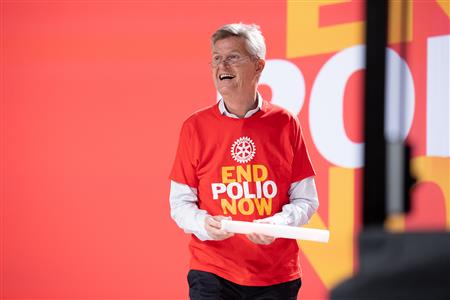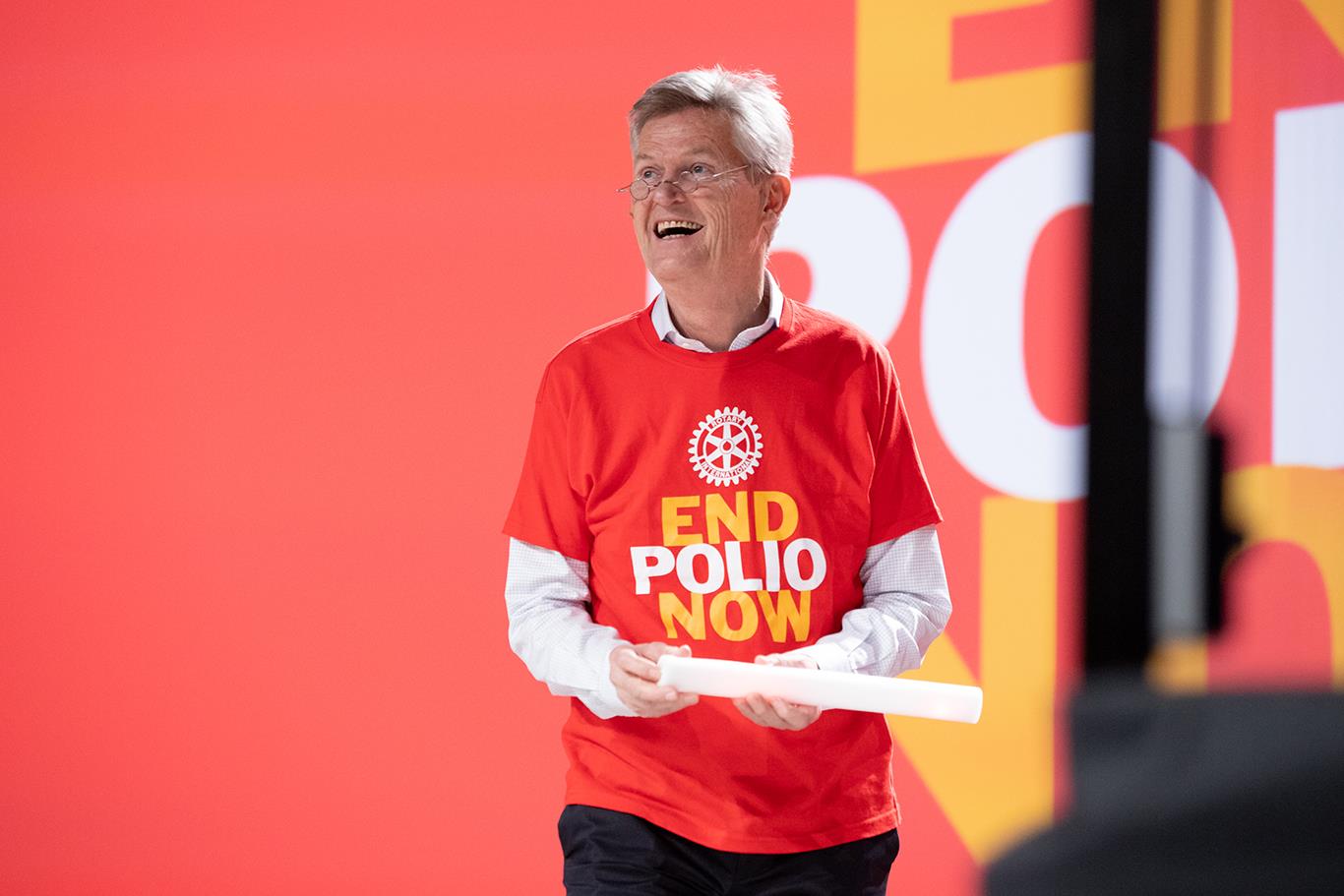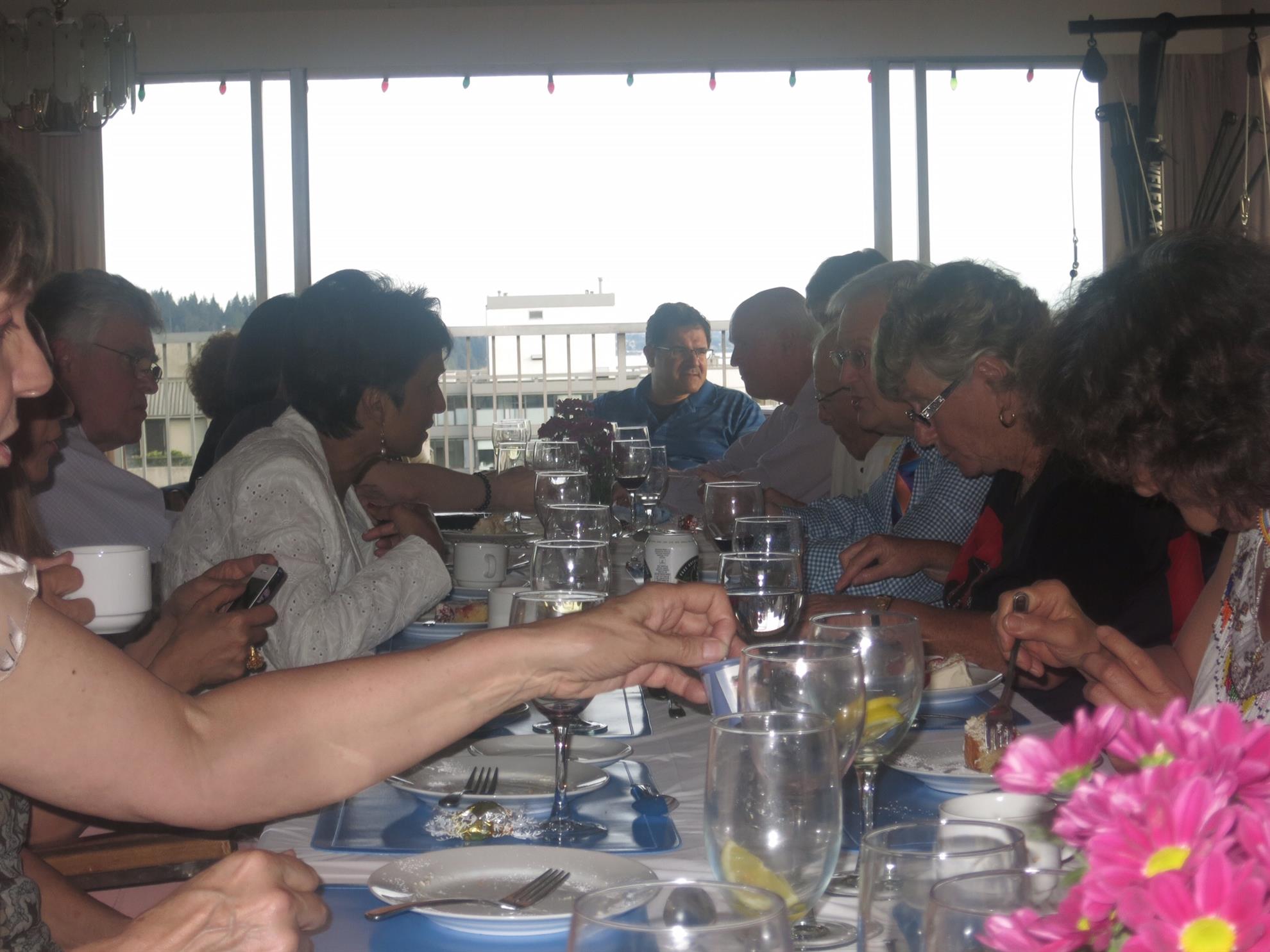
In a special interview, PolioNews (PN) talk
President Knaack, thank you for taking the time to speak to us. A little more than a year into the global COVID-19 pandemic, what is your take on the current situation, also with a view of the global effort to eradicate polio?
HK: There are many interesting lessons we learned over the past 12 months. The first is the value of strong health systems, which perhaps in countries like mine – Germany – we have over the past decades taken for granted. But we have seen how important strong health systems are to a functional society, and how fragile that society is if those systems are at risk of collapse. In terms of PolioPlus, of course, the reality is that it is precisely children who live in areas with poor health systems who are most at risk of contracting diseases such as polio. So everything must be done to strengthen health systems systematically, everywhere, to help prevent any disease.
The second lesson is the value of scientific knowledge. COVID-19 is of course a new pathogen affecting the world, and there remain many unanswered questions. How does it really transmit? Who and where are the primary transmitters? How significant and widespread are asymptomatic (meaning undetected) infections and what role do they play in the pandemic? And most importantly, how best to protect our populations, with a minimum impact on everyday life? These are precisely the same questions that were posed about polio in the 1950s. People felt the same fear back then about polio, as we do now about COVID. Polio would indiscriminately hit communities, seemingly without rhyme or reason. Parents would send their children to school in the morning, and they would be stricken by polio later that same day. Lack of knowledge is what is so terrifying about the COVID-19 pandemic. It also means we are to a large degree unable to really target strategies in the most effective way. What polio has shown us is the true value of scientific knowledge. We know how polio transmits, where it is circulating, who is most at risk, and most importantly, we have the tools and the knowledge to protect our populations. This knowledge enables us to target our eradication strategies in the most effective manner, and the result is that the disease has been beaten back over the past few decades to just two endemic countries worldwide. Most recently, Africa was certified as free of all wild polioviruses, a tremendous achievement which could not have been possible without scientific knowledge guiding us. So while we grapple for answers with COVID, for polio eradication, we must now focus entirely on operational implementation. If we optimize implementation, success will follow.
